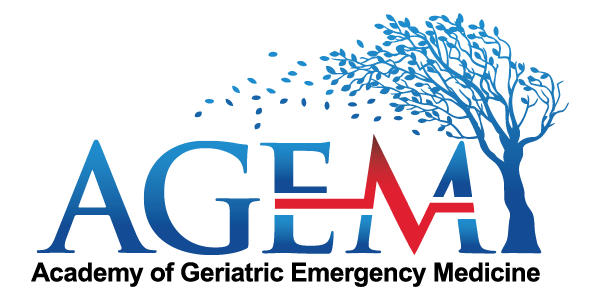AGEM Author Spotlight Sep 2022
Published Work by AGEM Member: Tony Rosen, MD MPH Associate Professor of Emergency Medicine Department of Emergency Medicine, Division of Geriatric Emergency Medicine Program Director, Vulnerable Elder Protection Team (VEPT) New York-Presbyterian Hospital/Weill Cornell Medical

Vulnerable Elder Protection Team: Initial experience of an emergency department-based interdisciplinary elder abuse programs
https://doi.org/10.1111/jgs.17967
Summary:
We believe this work is meaningful for Geriatric Emergency Medicine because: elder abuse and neglect are common and contribute significantly to morbidity and mortality. Despite this, they are dramatically under-recognized and under-reported. An ED visit provides a unique opportunity to identify elder abuse and initiate intervention, as interaction with a healthcare provider after injury or illness may be the older time that an abused older adult ever leaves their home. Unfortunately, emergency providers rarely detect elder abuse. Geriatric Emergency Departments are developing standardized protocols to assess and respond, which has the potential to help these vulnerable older adults.
Older adults experience care transition barriers after an ED visit. Through this qualitative analysis, we identified that prominent themes experienced include the abruptness of the discharge process, follow-up care navigation, new limitations hindering performance of baseline activities, and ramifications to caregivers impacting an older adult’s willingness to request or accept assistance. These findings can help improve geriatric emergency care and inform the development of effective emergency department-to-community care transition patient-centered interventions that have been elusive thus far.
Bio:
Dr. Rosen is a researcher in elder abuse and geriatric injury prevention at Weill Cornell Medical College and a practicing Emergency Physician at NewYork-Presbyterian Hospital. He also serves as the Associate Director of Research for the Department of Emergency Medicine and is Program Director for the department's first-of-its-kind Vulnerable Elder Protection Team (VEPT). He completed his residency training in Emergency Medicine in 2014 at NewYork-Presbyterian Hospital and completed a Geriatric Emergency Medicine Fellowship at Weill Cornell in 2016. He received his MD from Weill Cornell Medical College and MPH in epidemiology from UCLA.
Twitter: https://twitter.com/WCMEmergency
